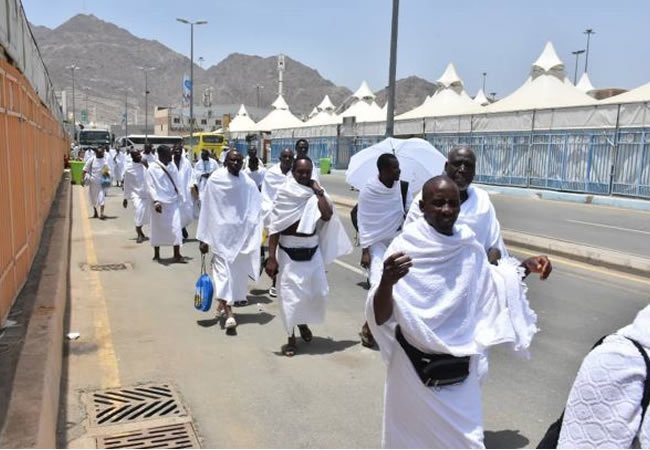Saudi Arabia has lifted its temporary visa suspension for 14 countries, including Nigeria, following the successful conclusion of Hajj 2025.
The decision marks the end of seasonal measures implemented to manage crowds and prevent unregulated pilgrimages during the sacred season.
Citizens from India, Pakistan, Bangladesh, Egypt, and others can now resume applying for short-term visas, restoring access for millions.
Why Were Visas Suspended?
The visa restrictions, effective from April 2025, targeted short-term categories like Umrah, business, family visit, and select tourist visas.
Authorities aimed to curb the misuse of non-Hajj visas by pilgrims attempting to enter Mecca without official permits.
Past incidents of unregistered pilgrims facing extreme heat and limited amenities prompted these safety-driven measures.
Which Countries Were Affected?
The suspension impacted 14 nations: India, Pakistan, Bangladesh, Egypt, Indonesia, Iraq, Nigeria, Jordan, Algeria, Sudan, Ethiopia, Tunisia, Yemen, and Morocco.
The Saudi Ministry of Hajj and Umrah emphasized that the restrictions ensured a safer, more organized pilgrimage experience.
These countries represent a significant portion of Hajj and Umrah participants, making the lifting of the ban a major development.
Block Work Visas Remain Suspended
Despite the lifting of short-term visa bans, Saudi Arabia continues to halt new Block Work Visas for the same 14 countries.
Block Work Visas allow foreign companies to sponsor workers in the Kingdom, a critical pathway for employment.
The ongoing suspension aligns with efforts to reduce irregular migration, combat visa misuse, and prioritize national employment initiatives.
Companies in affected nations face challenges securing new work visa quotas, impacting industries reliant on foreign labor.
Strict Penalties for Visa Overstaying
Saudi authorities have reiterated severe consequences for visa overstaying, a recurring issue during pilgrimage seasons.
Umrah visa holders were required to leave Mecca by April 29, 2025, to avoid penalties.
Violators face fines up to approximately USD 13,000, imprisonment for up to six months, and deportation after serving sentences.
These rules apply to both Umrah and general visit visa holders, underscoring the Kingdom’s commitment to compliance.
Preparations for Hajj 2026 Underway
Saudi Arabia has already begun planning for Hajj 2026, focusing on improving the pilgrim experience.
Hajj offices worldwide have received operational guidelines emphasizing technology, healthcare, and streamlined visa processes.
Dr. Tawfig bin Fawzan Al-Rabiah, Minister of Hajj and Umrah, pledged to make future pilgrimages safer and more spiritually fulfilling.
What This Means for Travelers and Businesses
The lifting of the short-term visa ban is a relief for families, tourists, and business travelers eager to visit Saudi Arabia.
However, the continued Block Work Visa suspension poses challenges for job seekers and industries in the 14 affected countries.
Travelers are urged to adhere to visa regulations to avoid hefty fines and legal repercussions.
A Balanced Approach to Pilgrimage and Policy
Saudi Arabia’s visa policies reflect a balance between facilitating sacred pilgrimages and enforcing regulatory control.
The Kingdom’s investments in technology and infrastructure aim to enhance the global pilgrimage experience.
As Hajj 2026 preparations gain momentum, the world watches how Saudi Arabia continues to shape its visa and labor policies.

